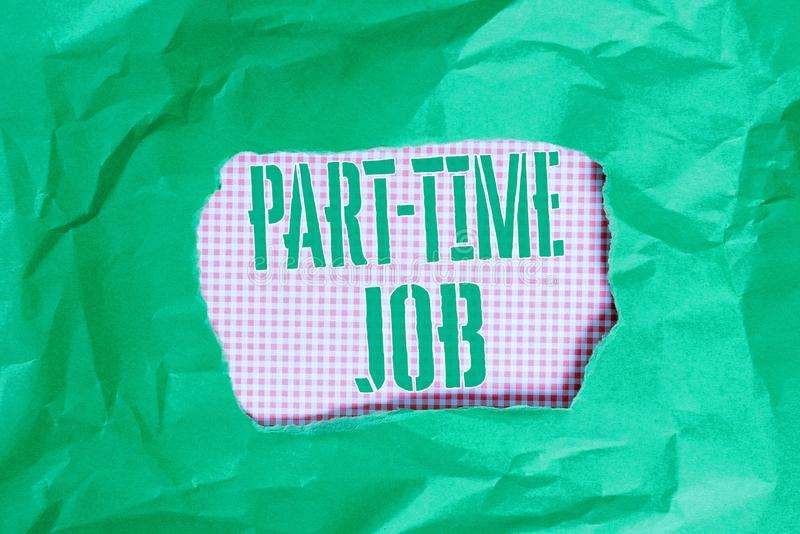
Dismissal email says “you’re an unbalanced parasite with a god complex”
Abandonment of employment as a reason for a dismissal is notoriously messy as the following case demonstrates. Please read on, there’s lots to learn
But was it a case of abandonment of employment?
A curious case of ‘he said, she said’ came before the Fair Work Commission in January 2022. It involved an employee who believed he’d been unfairly dismissed. This was via an email in which his employer gleefully noted. Among other unsavory sentiments, that they were looking forward to seeing him “cuffed and dragged off to jail.” The employer, however, contended that the case was not one of unfair dismissal, but rather abandonment of employment.
Let’s look at how the disagreement arose. The arguments presented by both parties. How the Commission came to a decision on whether it was a case of unfair dismissal, or abandonment of employment.
The employee receives a “threatening” email accusing him of corporate sabotage
The employee, a manager responsible for administration tasks, said that he hadn’t received an official notification of dismissal from his employer. However, his employer had locked him out of the company IT systems. In turn barred him from making calls on his phone.
The man said he was then “advised” by his employer that he was “suspended.” Thereafter, his employer sent him an email which he characterised as “threatening,” wherein he was accused of corporate sabotage. Critical to refuting his employer’s claims of abandonment of employment, the employee asserted to the Fair Work Commission that he was dismissed via this email. He highlighted that the email indicated “a clear breakdown of the [employment] relationship.”
Wheels of justice turn slowly
Excerpts from the email, which featured the subject line “the wheels of justice turn slowly but exceedingly fine,” read thusly:
“As amusing as it is that I’m free rent [sic] I’m living rent free in your head (and the bonus of not having to juggle an unbalanced parasite with a god complex) … it’s only fair that I give you a heads up.” “You’ll be like a trophy. Finally you will be an icon, indisputably infamous and a case study for law students.” “At this point, the combination of all the different things you have done (extortion) and the insane amounts you have done it – you might as well go for broke.”
“The downtrodden and defeated look on your face as you are cuffed and dragged off to jail for who knows how long in a bad fitting second hand suit some charity will loan you will be quite a scene.” “I’ll see you when I’m on the stand giving evidence against you.”
The employee subsequently made an unfair dismissal application with the Fair Work Commission.

The employer denies dismissing the employee, alleging abandonment of employment
In the unfair dismissal hearing, at the FWC the employer denied the employee’s claim that he was unfairly dismissed. It argued that the employee was guilty of abandonment of employment, noting his “behaviour and performance issues.”
Rather than having dismissed the employee, the employer claims that he was placed on leave. This came after the employee expressed that he was “feeling overwhelmed” during a phone call. This admission led to the employer offering to meet with the employee to discuss his behaviour. A meeting which the employee failed to attend. Thereafter, the employer claims he “refused to attend work or engage in a conversation.”
The Fair Work Commission rejects abandonment of employment claim
The Commission ruled that the “threatening” email which the employee had received was tantamount to a dismissal. It found that it was “in a tone sufficient to make clear the employment relationship was at an end.” The Commission also noted that leading up to the email, the relationship between the two parties had been “under severe strain.”
Ultimately, the Commission rejected the employer’s claim of abandonment of employment. Instead, it found that the employee had been unfairly dismissed, describing it as “harsh” and “unreasonable.” It noted that the employer didn’t adhere to legal requirements when dismissing him. This included not providing the employee with a proper opportunity to respond to the reasons for his dismissal. The Commission also found that there was insufficient evidence to justify the employee’s dismissal, and that he wasn’t paid according to his contract.
Given the hostilities between the two parties, the Commission decided that reinstating the employee wasn’t appropriate. He was instead awarded compensation.

What classifies as abandonment of employment?
In the aforementioned case, the charge of abandonment of employment against the employee was effectively rendered moot. Namely, because the Commission found that the “threatening” email in fact communicated the termination of his employment. But had the Commission not determined that the email was notice of dismissal, would the employee have been found to have abandoned his employment?
The definition of abandonment of employment
According to the Fair Work Ombudsman, abandonment of employment is when an employee doesn’t turn up for work for an unreasonable amount of time. The employee doesn’t have a reasonable excuse for their absence, nor speaks to their employer about being away. Also, the employee must have made it clear that they no longer have any intention of being bound by the terms of their employment contract. This results in what is called a ‘renunciation’ of the employment contract.
In the aforementioned case, the employer offered to meet with the employee to discuss the difficulties he was having while performing his job. However, the employee failed to attend this meeting and thereafter, according to the employer, failed to attend work or engage in conversation. So, is this enough to constitute abandonment of employment?

When an employee is absent without reason, what are an employer’s obligations?
The Fair Work Ombudsman states that “an employer should make all reasonable attempts to contact an employee who they think may have abandoned their employment.” This is because much of the time, abandonment of employment is simply a misunderstanding between the employee and their employer. Often, an employee genuinely can’t contact their employer for a range of reasons. Like for instance, being involved in a car accident or the sudden onset of illness.
The steps employers must take to contact an absent employee
The employer must make attempts to get in touch with the employer via phone, email or fax. They must also document all their contact attempts in the employee’s personal file. This means including any emails or voicemail messages.
Once initial contact attempts are made, and the employer receives no reply. It must then attempt to send a letter to the employee. In the letter, the employer must ask the employee the reason for their absence. If it’s the result of a medical condition. This can be done via post or email, and if the latter, the employer must ensure they have their automatic sender notification activated.
If the employee replies, stating that their absence is the result of a medical condition, the employer must ask for evidence. If the employee provides a non-medical reason for their absence, the employer must ask what their intentions are regarding their employment.

If all else fails, an employer must make one last attempt
If an employee fails to reply to any of these communication attempts, the employer must send another, final letter via post or email. This letter must:
- Describe all attempts made to contact the employee. This includes whether they were made by email, text, phone calls or post. Also, the dates contact was attempted, and the details of any messages left or correspondence sent.
- State that if the employee fails to make contact or provide a reason for their absence by a specific date (determined by the employer). The employer will determine that the employee has abandoned their employment.
Has your employer unfairly dismissed your employment, citing abandonment of employment?
Scenarios where abandonment of employments issues arise that lead to a unfair dismissal.
- Extended illness. (local, or your stuck overseas)
- Injury and workers compensation.
- Maternity leave, back to back pregnancies’, exceeded leave
- Long service leave.
- Study tours and extended overseas holidays.
- Workplace investigations that extend for months.
- Suspensions, and the employer doesn’t get back to you
- Relocations that are unclear (start date, broken period of service, inadvertently dismissed etc).
- Part time and casual workers. Where the work seems to disappear for unlawful reasons and your just waiting at home.
Abandonment of employment is used as a sort of “get out jail card” by employers. They say. “look you just stay at home and we’ll be in touch’. “Things are quite at the moment, stay home, we’ll give you a call.. “Once the investigation is finalized we’ll be in touch”. The list is endless, but what they all have in common is the employer doesn’t ring you. Doesn’t take your call. Then blames you for abandoning your job.
Be aware there is a strict 21 days to lodge a claim at the Fair work Commission. The concern in allot of circumstances is 21 days from when? Last day of work?, last day I got paid?, the day I finally realized they are not getting me back?. Ring us, immediately, the 21 days is ruthlessly enforced regarding your dismissal.
Dismissal email says “you’re an unbalanced parasite with a god complex”
If your employer is claiming that you have abandoned your employment, but has not followed the aforementioned steps. Give us a call on 1800 333 666. Our friendly team of unfair dismissal experts can provide you with a free initial consultation to see if you’re eligible for an unfair dismissal application. Or determine what other course of action may be appropriate. We manage all Fair work Australia matters, workers rights, casual employees, toxic workplace culture. AWNA work on a national basis.






